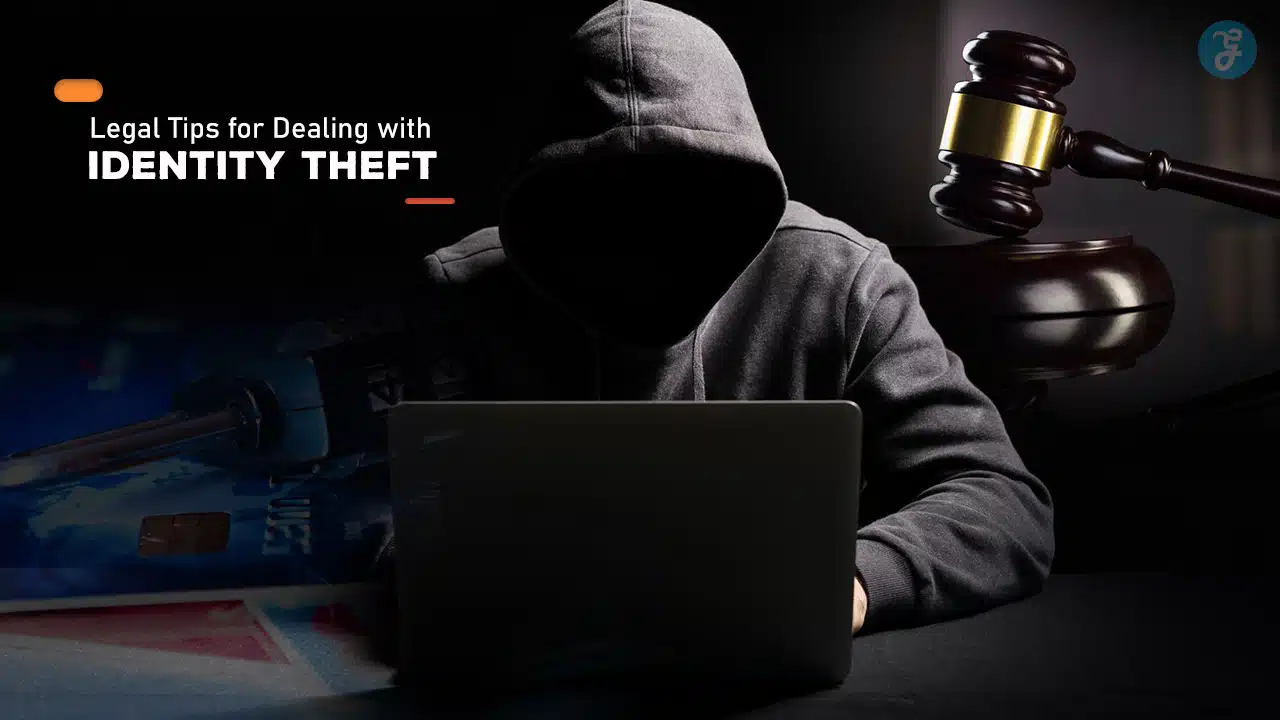Identity theft is a stressful and complex situation that can impact your finances, credit score, and peace of mind.
When someone illegally obtains and uses your personal information, knowing how to respond quickly and legally is essential to minimizing damage and reclaiming your identity.
Here’s a comprehensive guide to the 8 crucial legal steps you should take to protect your rights and regain control.
8 Legal Tips for Dealing with Identity Theft
Here are the legal tips to deal with identity theft.
1. Report the Identity Theft to the Federal Trade Commission (FTC)
The first step in addressing identity theft is to report the incident to the Federal Trade Commission (FTC).
By filing a report, you create an official record of the identity theft, which is essential for any future legal actions, such as disputing fraudulent charges or correcting your credit report.
The FTC report serves as proof of identity theft when communicating with banks, credit bureaus, and creditors.
Why It’s Important:
Filing an FTC report initiates the official documentation process, enabling you to claim legal protection and support.
It also provides you with an FTC Identity Theft Report, which is essential when filing a police report and dealing with creditors.
How to Proceed:
Visit identitytheft.gov and follow the steps to file a report.
The FTC will ask you to provide information on what was stolen, such as your Social Security number, bank information, or credit card details.
Once filed, you’ll receive a copy of the report, which you should save and use when disputing charges or correcting records.
2. Contact Credit Bureaus to Place a Fraud Alert or Credit Freeze
Once identity theft is confirmed, it’s essential to contact the major credit bureaus—Experian, TransUnion, and Equifax—to place a fraud alert or credit freeze on your accounts.
A fraud alert warns creditors to take additional steps to verify your identity before approving new credit applications, while a credit freeze restricts access to your credit report, making it difficult for thieves to open accounts in your name.
Why It’s Important:
A fraud alert or credit freeze helps protect you from additional fraudulent activities.
By restricting access to your credit file, you minimize the risk of new accounts being opened without your knowledge.
How to Proceed:
You can initiate a fraud alert by contacting any one of the three credit bureaus, which will automatically notify the others.
To place a credit freeze, you’ll need to contact each bureau individually, either online or by phone.
Credit freezes are free and can be temporarily lifted if you need to apply for new credit.
3. File a Police Report
Filing a police report is another important step in addressing identity theft.
While the FTC report is essential for documenting the incident, a police report can further support your case when working with creditors, banks, or credit bureaus.
Some creditors may require both the FTC and police reports to remove fraudulent charges from your accounts.
Why It’s Important:
A police report provides official documentation with local law enforcement, which can be useful if you need to press charges or require assistance in court.
It also adds credibility to your case when disputing charges or rectifying your credit file.
How to Proceed:
Visit your local police department with copies of your FTC report, a government-issued ID, proof of address, and any evidence of fraud, such as statements with unauthorized charges.
Explain the incident in detail, and make sure to request a copy of the report for your records.
4. Dispute Fraudulent Charges with Creditors and Banks
After identity theft, review your bank and credit card statements carefully and report any unauthorized transactions.
Federal law entitles you to dispute fraudulent charges and have them removed from your accounts, provided you report them promptly.
The sooner you address these issues, the easier it will be to prevent further financial damage.
Why It’s Important:
Disputing fraudulent charges prevents you from being liable for unauthorized transactions and helps protect your financial health.
By taking immediate action, you can minimize potential losses and start reclaiming control over your accounts.
How to Proceed:
Contact the fraud department of your bank or credit card issuer, and inform them of the unauthorized charges.
Provide them with your FTC and police reports, as these documents support your case and expedite the dispute process.
Most banks and credit card companies have specific procedures for handling fraud cases and may provide you with a provisional credit during the investigation.
5. Monitor Your Credit Reports Regularly
Monitoring your credit report is essential to ensuring that no additional fraudulent activities occur.
You are entitled to one free credit report per year from each of the three major bureaus, and it’s wise to check them periodically, especially after experiencing identity theft.
Why It’s Important:
Identity theft can have lasting effects, and monitoring your credit report helps you detect new issues quickly.
Vigilant monitoring allows you to respond promptly to any unauthorized activity, reducing potential damage.
How to Proceed:
Visit annualcreditreport.com to request your free reports.
Examine each report for suspicious accounts, new credit inquiries, and any incorrect information.
If you notice any fraudulent activity, dispute it with the credit bureau and provide documentation to support your claim.
6. Replace Compromised IDs or Documents
If your identity theft involves stolen identification documents, such as a driver’s license, passport, or Social Security card, it’s crucial to replace them immediately.
Stolen IDs are often used to open new accounts, commit financial fraud, or impersonate the victim, so securing new documents can reduce your risk.
Why It’s Important:
Replacing compromised identification prevents further misuse of your identity.
By reissuing secure, updated documents, you reduce the likelihood of the thief using your information for fraudulent activities.
How to Proceed:
Visit the relevant government agency to replace each document. For a Social Security card, contact the Social Security Administration (SSA).
For a driver’s license, visit your local Department of Motor Vehicles (DMV). Be sure to take your police report, FTC report, and any proof of identity theft.
7. Consider Working with an Identity Theft Attorney
In cases of extensive or severe identity theft, an identity theft attorney can help guide you through the process and represent your interests.
Identity theft attorneys specialize in these types of cases and understand the complexities involved, which can be invaluable if the identity theft has resulted in major financial, legal, or criminal issues.
Why It’s Important:
An attorney can advocate for your rights, help negotiate with creditors, and guide you in correcting your credit report.
They may also assist with any civil suits or claims related to the identity theft, ensuring that you receive fair treatment and support.
How to Proceed:
Look for an attorney specializing in identity theft or consumer rights.
Consult with them about your situation and bring all relevant documentation, including the FTC report, police report, and any communication with creditors.
Some attorneys offer free consultations and may work on contingency if you’re seeking damages.
8. Implement Preventative Measures to Safeguard Your Identity
Once you’ve taken steps to recover from identity theft, it’s crucial to implement preventative measures to reduce your risk in the future.
From securing sensitive information to using identity theft protection services, these actions help safeguard your personal information and prevent further incidents.
Why It’s Important:
Preventative measures help you protect yourself against future identity theft attempts, ensuring your information remains secure. These proactive steps reinforce your defenses, making it more difficult for thieves to access or misuse your data.
How to Proceed:
Consider subscribing to an identity theft protection service, which can monitor your personal information and alert you to any suspicious activity.
Use strong passwords, enable two-factor authentication on your accounts, and avoid sharing sensitive information online or over the phone.
Shred documents containing personal information, and regularly review your financial statements for any signs of unauthorized activity.
Wrapping Up: Taking Control After Identity Theft
Dealing with identity theft is challenging, but taking prompt and thorough legal steps can help you regain control and protect your financial future.
By reporting the incident, securing your credit, monitoring for new activity, and implementing preventative measures, you can overcome identity theft and reduce the likelihood of future issues.
Remember, vigilance is key; protect your identity with consistent monitoring and strong security practices.


































